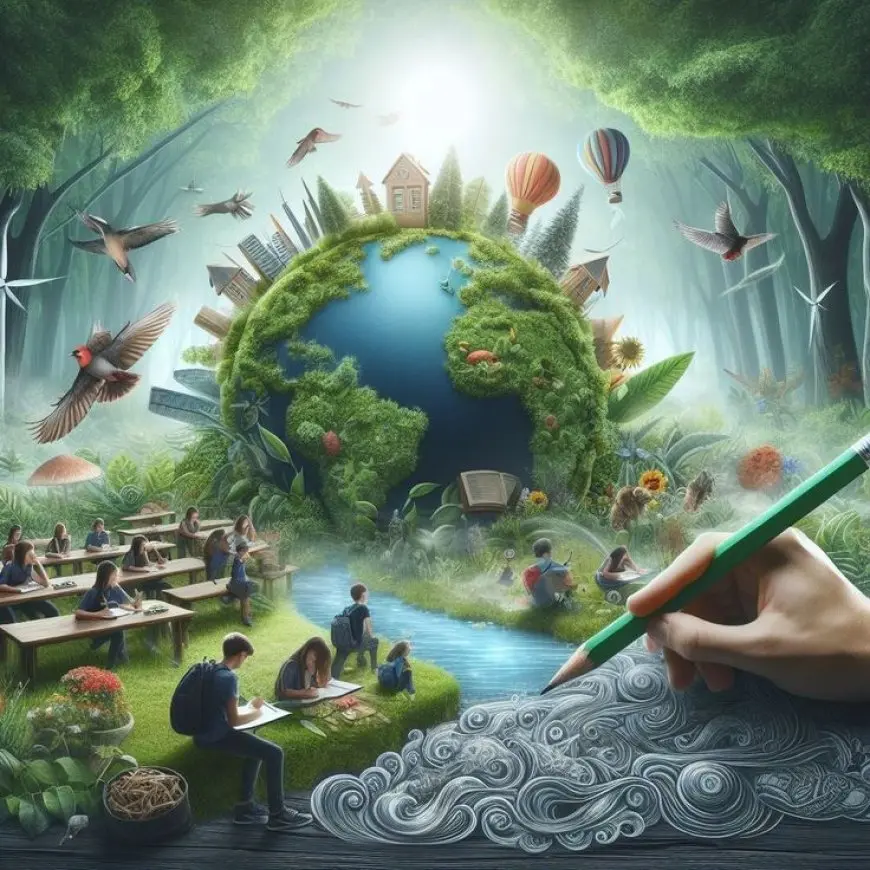Why Environmental Education is Crucial
Why Environmental Education is Crucial

Environmental education plays a vital role in fostering a deeper understanding of the natural world and encouraging responsible behavior toward the planet. As the global community faces increasing environmental challenges, such as climate change, pollution, and resource depletion, it is essential for individuals, communities, and governments to take action. Education is the foundation for building an environmentally conscious society that values sustainability and actively works to protect the Earth for future generations.
Raises Awareness of Environmental Issues
Environmental education provides individuals with the knowledge they need to understand the complexities of environmental issues. It highlights the impact of human activities on the environment, including:
- Climate change and global warming.
- Deforestation and loss of biodiversity.
- Pollution of air, water, and soil.
By learning about these topics, people become more aware of the importance of sustainable practices and the need for change.
Promotes Sustainable Practices
A key goal of environmental education is to encourage sustainable living. Through education, individuals are equipped with the tools and knowledge to:
- Reduce waste through recycling and reusing materials.
- Conserve energy and water in daily life.
- Choose products that are environmentally friendly and ethically sourced.
By adopting sustainable practices, people contribute to the preservation of natural resources for future generations.
Empowers Action and Advocacy
Education about the environment not only informs but also inspires action. People who understand environmental challenges are more likely to:
- Participate in environmental conservation activities, such as tree planting or clean-up campaigns.
- Advocate for policy changes that address environmental issues at local, national, and global levels.
- Support initiatives and organizations that promote sustainability and environmental protection.
Empowered individuals and communities can drive positive change in their environments.
Cultivates Critical Thinking and Problem-Solving Skills
Environmental education teaches students to think critically about complex problems. It encourages them to analyze data, evaluate the impact of human actions, and develop solutions. For example:
- Students may explore the consequences of industrial pollution and propose alternative energy sources.
- They may investigate conservation efforts to protect endangered species or restore damaged ecosystems.
These skills are not only valuable for addressing environmental challenges but also for fostering informed and engaged citizens in all aspects of society.
Fosters a Deep Connection to Nature
Environmental education helps individuals develop a personal connection to the natural world. When people understand the interdependence of ecosystems and the beauty of nature, they are more likely to:
- Appreciate wildlife and natural landscapes.
- Understand the importance of preserving habitats and biodiversity.
- Engage in eco-tourism and other activities that support conservation.
This emotional connection drives a sense of responsibility toward protecting the environment and preserving it for future generations.
Addresses Global and Local Environmental Concerns
Environmental education bridges the gap between local and global concerns. By learning about local environmental issues, such as pollution in nearby rivers or deforestation in nearby forests, individuals can take action on a community level. On a broader scale, global environmental issues, such as climate change and biodiversity loss, are also examined. This dual focus helps people understand how their actions at the local level can contribute to solving global problems.
Encourages Interdisciplinary Learning
Environmental education naturally intersects with multiple academic disciplines, making it an excellent way to engage students across subjects. For example:
- Science is integral to understanding ecological systems and the impact of human activity.
- Geography helps students understand the relationship between land use and environmental change.
- Social studies encourages reflection on policies and practices related to sustainability.
By integrating environmental education into various fields of study, students gain a well-rounded perspective on the interconnectedness of society and the environment.
Promotes a Sense of Responsibility for Future Generations
Environmental education emphasizes the concept of sustainability—ensuring that we meet the needs of the present without compromising the ability of future generations to meet their own needs. This perspective encourages people to:
- Consider the long-term effects of their actions on the environment.
- Support policies and practices that prioritize environmental protection.
- Advocate for sustainable development and renewable energy solutions.
In this way, environmental education fosters a mindset of stewardship and responsibility for the planet’s future.
Environmental education is crucial for creating a more informed, sustainable, and responsible society. By equipping individuals with the knowledge and skills to address environmental challenges, we can protect the Earth and ensure a healthier, more sustainable world for future generations.







